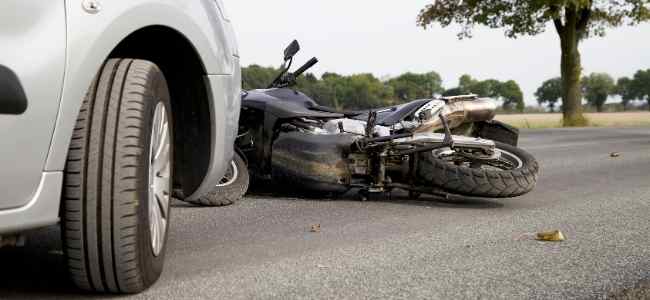There’s nothing quite like the thrill you get when driving a motorcycle.
Unfortunately, there’s a serious risk that comes along with that thrill. The National Highway Traffic Safety Administration states that motorcyclists are 27 times more likely to die in a crash than those driving or riding in a car.
However, even a nonfatal motorcycle accident can be dangerous if you don’t know what to do in the moments immediately following the crash.
Luckily, we’re here to help give you the guidance you need, should you find yourself dealing with the aftermath of a crash. Keep reading to learn about the most important steps to take after a motorcycle accident.
Keep Calm and Scan Your Body
When you first get into a motorcycle accident, your body may go into shock. This means you may not fully realize what has happened. After that initial shock wears off, try to stay calm. Take a few deep breaths to slow down your heart rate.
Then, take a few moments to mentally scan your body. Do you feel any sharp pains? Are you trapped by anything? Does it feel safe to move your head and neck? If you feel like you can safely move, then do a visual scan of your body to look for any injuries and blood.
If you notice anything severe, try not to move until help arrives, as you could end up making your injuries worse. If it’s safe to move, get out of the road, so you’re in a safe place.
Exchange Contact Information
Once you’ve determined that you’re okay to move, you’ll need to talk to the other driver involved in the accident. Exchange contact information, making sure you get the following:
- Name
- Phone number
- Email address
- Insurance information
- License plate number
- Make and model of the other vehicle
The more information you can gather, the better. Even if it doesn’t seem important at the time, write down as much as you can at the moment.
Call the Police
Even if the accident doesn’t seem too serious, you should call the police and file a police report.
When an officer gets to the scene, they’ll create their own record of the event. This will be based on the evidence they see at the scene, and the information they gather talking to you, the other driver, and witnesses.
Make sure to write down the name and badge number of the responding officer, just in case you need it later. If there’s a lawsuit in the future, it will be helpful to have the officer’s information. And, filing a police report is an important part of building your case.
Talk to Witnesses
When you’re waiting for the police to arrive at the scene, try to talk to a few witnesses who saw the accident. There may be things you don’t remember from the accident, and witnesses can help you fill in the gaps.
If you have your smartphone with you, see if you can record them giving their version of the events. Otherwise, take detailed notes about what they say. And, don’t forget to write down their name and contact information, should you need to talk to them again.
As you talk to the police, witnesses, and the other driver, make sure you never admit fault, which could impact a later court case.
Take Pictures of the Scene
Thanks to the convenience of smartphones, you now have a digital camera with you wherever you go. Use this to your advantage following a motorcycle accident.
Take as many pictures of the scene as you can, making a point to photograph the following:
- Your motorcycle
- The other vehicle
- The road and/or intersection where the accident happened
- Weather and road conditions
- Road signs or mile markers
Again, the more you document the better. Should you end up going to court, having photographic evidence of the scene can help aid your case.
Contact Your Insurance Company
After you’ve gathered the contact information from the other driver, you’ll need to contact your car insurance agent to let them know about the accident.
Even when speaking to your insurance agent, you should take special care to make sure you never admit fault. Even though you may feel like your insurance is on your side, that’s not necessarily the case.
The insurance report is something else that can be used in your court case, should it come to that, so admitting fault could work against you.
Seek Medical Attention
Even if you don’t immediately think you’re injured, it’s best to go to a doctor as soon as you leave the scene of the accident.
Sometimes, the shock and adrenaline following the accident make it harder for you to realize that you’ve been injured. And you could develop symptoms in the days following the crash.
Get a thorough checkup to make sure you don’t have any internal injuries or risks of developing more serious conditions.
Contact a Motorcycle Accident Attorney
Following a motorcycle accident, it’s best to understand your options. Contact a local motorcycle accident lawyer to talk through the details of the crash and determine if you should pursue a legal case.
Depending on the nature of your accident, you could suffer physical or emotional damages that the other driver should be held responsible for helping to cover. Visit kemprugegreen.com to learn more about how to choose the right motorcycle accident attorney.
Take Action Following a Motorcycle Accident
We hope you never find yourself dealing with the aftermath of a motorcycle accident.
However, if you do, you’re now more prepared about what to do in the moments immediately following the crash. By following the steps we outlined above, you’ll have peace of mind that you’re doing all the right things after an accident.
Looking for more helpful lifestyle advice like this? Check back daily for new content to help you live your best life.


